Filter by
SubjectRequired
LanguageRequired
The language used throughout the course, in both instruction and assessments.
Learning ProductRequired
LevelRequired
DurationRequired
SkillsRequired
SubtitlesRequired
EducatorRequired
Explore the Linear Programming Course Catalog
 Status: Free Trial
Status: Free TrialJohns Hopkins University
Skills you'll gain: Linear Algebra, Applied Mathematics, Algebra, Advanced Mathematics, Graph Theory, Geometry, Applied Machine Learning, Markov Model, Probability
 Status: NewStatus: Free Trial
Status: NewStatus: Free TrialSkills you'll gain: Exploratory Data Analysis, Regression Analysis, Predictive Modeling, Supervised Learning, Scikit Learn (Machine Learning Library), Data Analysis, Correlation Analysis, Machine Learning Methods, Scatter Plots, Statistical Analysis, Data Validation, Data Manipulation, Verification And Validation, Pandas (Python Package), Histogram
 Status: Preview
Status: PreviewUniversity of Leeds
Skills you'll gain: Resource Allocation, Operations Research, Production Planning, Graph Theory, Data-Driven Decision-Making, Decision Making, Mathematical Modeling, Process Optimization, Network Planning And Design, Complex Problem Solving, Computational Logic, Algorithms, Linear Algebra, Cryptography
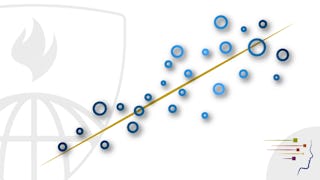 Status: Free Trial
Status: Free TrialJohns Hopkins University
Skills you'll gain: Regression Analysis, Statistical Analysis, Statistical Modeling, Data Science, Predictive Modeling, Probability & Statistics, Statistical Inference
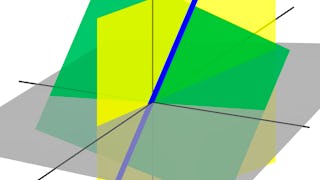 Status: Free Trial
Status: Free TrialJohns Hopkins University
Skills you'll gain: Linear Algebra, Algebra, Mathematical Modeling, Engineering Analysis, Applied Mathematics, Mathematical Theory & Analysis, Geometry
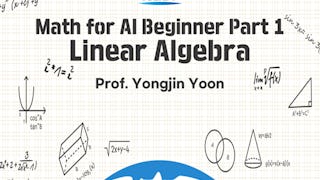 Status: Preview
Status: PreviewKorea Advanced Institute of Science and Technology(KAIST)
Skills you'll gain: Linear Algebra, Artificial Intelligence and Machine Learning (AI/ML), Artificial Intelligence, Applied Mathematics, Deep Learning, Machine Learning, Supervised Learning
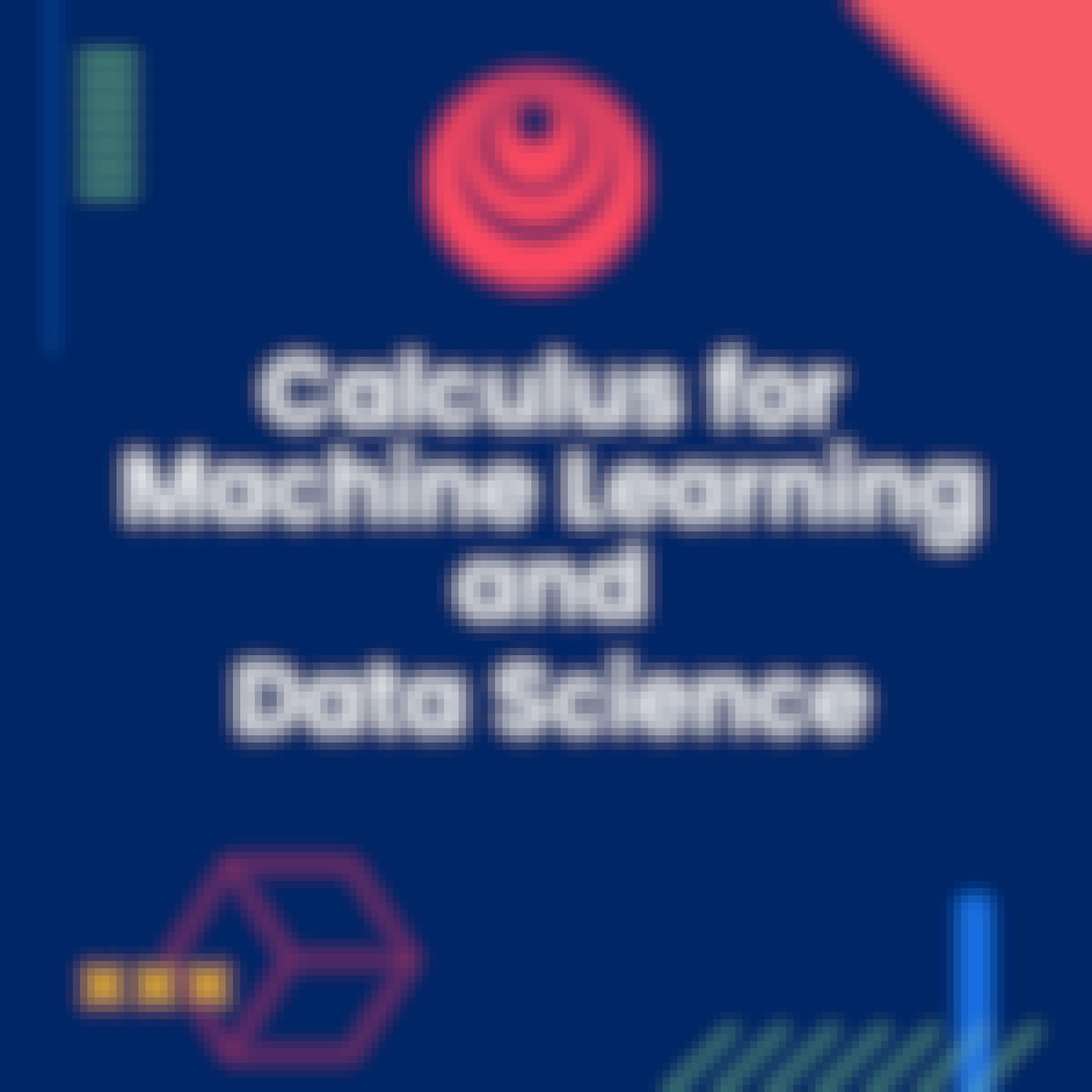 Status: Free Trial
Status: Free TrialDeepLearning.AI
Skills you'll gain: Applied Mathematics, Calculus, Mathematical Modeling, NumPy, Machine Learning, Python Programming, Artificial Neural Networks, Deep Learning, Visualization (Computer Graphics), Derivatives
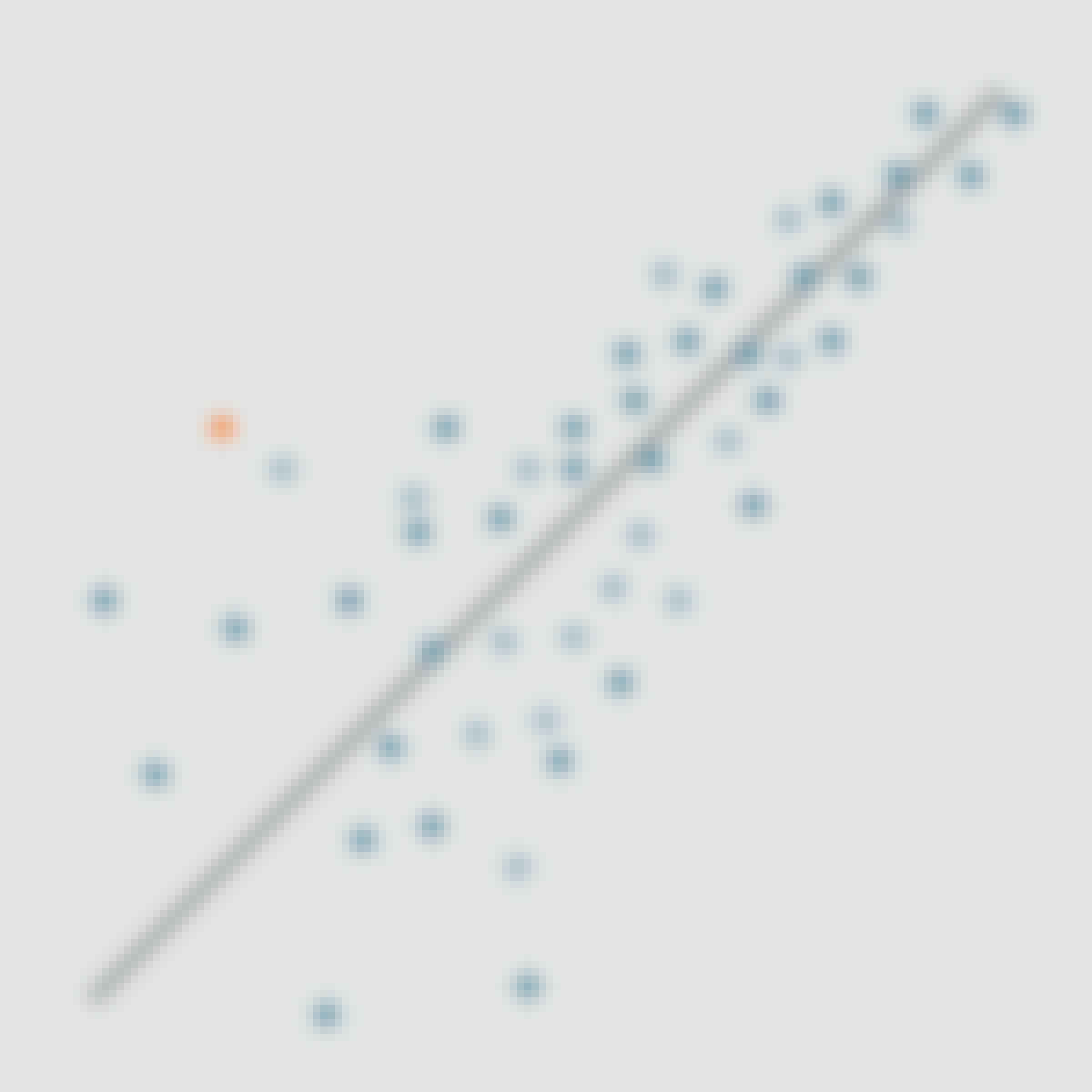 Status: Free Trial
Status: Free TrialDuke University
Skills you'll gain: Regression Analysis, Statistical Analysis, R Programming, Statistical Modeling, Statistical Inference, Correlation Analysis, Data Analysis, Statistical Methods, Exploratory Data Analysis, Mathematical Modeling, Statistics, Predictive Modeling, Anomaly Detection
 Status: Free Trial
Status: Free TrialUniversity of Colorado Boulder
Skills you'll gain: Algorithms, Data Structures, Theoretical Computer Science, Computational Thinking, Computer Science, Programming Principles, Python Programming, Advanced Mathematics, Design Strategies, Mathematical Theory & Analysis, Analysis
 Status: Preview
Status: PreviewGeorgia Institute of Technology
Skills you'll gain: Basic Electrical Systems, Electronic Components, Electrical Systems, Electrical Engineering, Engineering Analysis, Electronics, Engineering Calculations, Physics
 Status: Free Trial
Status: Free TrialStanford University
Skills you'll gain: Algorithms, Bioinformatics, Graph Theory, Computational Thinking, Data Structures, Theoretical Computer Science
 Status: Free Trial
Status: Free TrialJohns Hopkins University
Skills you'll gain: Applied Mathematics, Estimation, Numerical Analysis, Calculus, Cost Estimation, Mathematical Modeling, Operations Research, Derivatives, Algebra
Linear Programming learners also search
In summary, here are 10 of our most popular linear programming courses
- Linear Algebra: Matrix Algebra, Determinants, & Eigenvectors: Johns Hopkins University
- Linear Regression & Supervised Learning in Python: EDUCBA
- Introduction to Technology-Assisted Decision-Making: University of Leeds
- Regression Models: Johns Hopkins University
- Linear Algebra: Linear Systems and Matrix Equations: Johns Hopkins University
- Math for AI beginner part 1 Linear Algebra: Korea Advanced Institute of Science and Technology(KAIST)
- Calculus for Machine Learning and Data Science: DeepLearning.AI
- Linear Regression and Modeling : Duke University
- Dynamic Programming, Greedy Algorithms: University of Colorado Boulder
- Linear Circuits 1: DC Analysis: Georgia Institute of Technology










